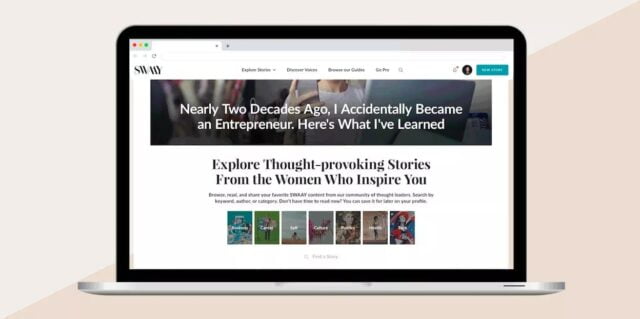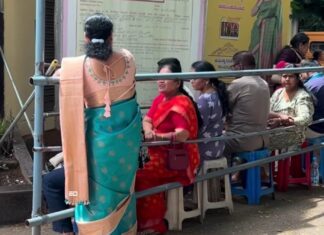It has been argued for years by women that they are not admitted for holding a voice on different media platforms. However, a layperson would think that it is because those platforms aren’t allowing women the opportunities to speak. The problem is actually contrary: according to the Guardian “even when there are no gatekeepers to exclude them, no old boys’ network to shut them out, women still aren’t piping up enough, as evidenced by Wikipedia, where 85% of the contributions come from men.”
Does that mean that women are silent by choice?
Whether it’s real-world contributions, women’s issues, the film industry, or corporate sectors; men seem to still dominate the upper side of the media debates. And it becomes noticeable when we see the opinions and arguments of men on different subjects being presented virtually in op-eds. In fact, men provide more opinion coverage on women’s issues than women do themselves.
The reason for that was revealed by one of the modern-age writers, Catherine Orenstein, who started her journey by talking about how a woman’s opinion about different non-subjective issues is shaped subjectively.
According to her, sentences that women often say, like ‘I am not an expert, but … or I don’t want to be pretentious but … or I don’t have a PhD or anything, but…’ create an impact that women aren’t as qualified as men to present a valid and well-thought opinion. It happens because women intentionally pull themselves out of the conversation. And because they effectively remain absent from the discussions, the time when they join these forums or publish their op-eds—assuming that they do at some point—their opinions and stories are swept under the rug.
Catherine further attested to the fact that women have a habit of discounting their knowledge; they think that what they know in abundance doesn’t matter, and they don’t know what matters—this disconnection is the reason behind the gender gaps in opinion-based platforms.
For Iman Oubou, a former scientist and beauty queen turned tech entrepreneur, this was an undeniable white space she sought out to fill by creating a platform that would put power back into women’s hands to control – or sway – their narratives. In 2016, Oubou launched SWAAY, an all-in-one publishing platform that served to champion women thought leaders by giving everyday women access to an extensive editorial toolkit, 24/7 access to editorial guidance and performance insights. Not only has the platform been a means through which future generations of young and ambitious women could learn to think like content creators and marketers, but to also learn the value of thought leadership in an ever-changing digital environment.
It was pointed by Catherine Orenstein that the reason women don’t contribute to mainstream opinion pages is that they are always in fear of overstepping or bragging. This was the case for Iman Oubou herself. After being approached by editors to write about her experience with sexism while fundraising, it took her over 6 months to agree to submitting an op-ed out of fear of being judged. After finally voicing her story in an op-ed for Harper’s Bazaar in 2017, Oubou was bombarded with messages from women who encountered equally as painful events which hindered their ability to reach their own dreams. Through these events, among many others, she discovered that her true calling in life was helping everyday women share their stories rather than telling them what to do and what to care about – something female-forward media has been notorious for.
A women’s publishing platform with the purpose of collectively elevating women’s voices is exactly what can eradicate many of the fears faced by everyday women. It can free them of the care of social obligation and make them more interested in the valued conversation. And of such modern platforms is SWAAY. Oubou designed the SWAAY community and platform to cater to the real struggles that many women face and are often stifled by, such as not having an established voice, feeling uncertain about their content creating abilities, lacking the necessary resources and viewers to scale their brands, struggling to navigate analytics and SEO, and even battling imposter syndrome.
To combat these common limitations, the new platform offers its members access to the site’s professional editors, the ability to network with thought leaders, freedom to link content back to their personal websites, and more. By giving women access to a safe space where their only concern is what their next story will be, Oubou strived to challenge and redefine thought leadership as something that is not only exclusive and accessible to those who already have a well-establish platform or following, but can be utilized by everyday women who aspire to be entrepreneurs, experts, consultants or executives.
(Syndicated press content is neither written, edited or endorsed by ED Times)
Read more:

































